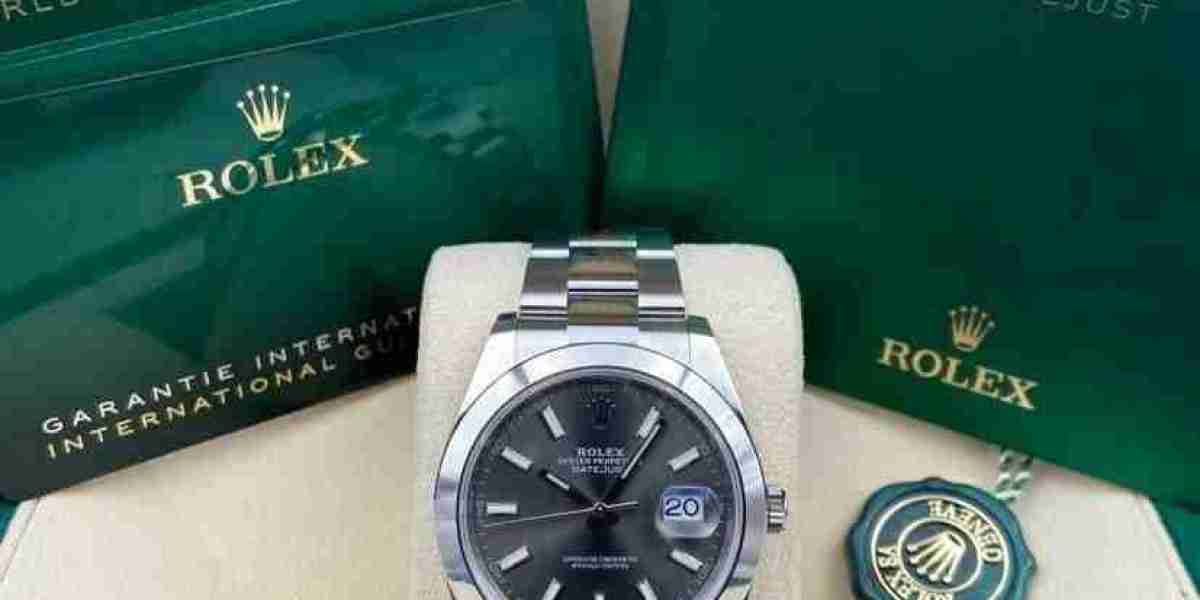The luxurious watch market is a multi-billion dollar industry, with manufacturers like Rolex leading the way in which when it comes to prestige and reputation. Rolex watches are identified for their impeccable craftsmanship, high quality materials, and iconic design. Sadly, the excessive demand for Rolex watches has also led to a rise in the production and sale of counterfeit or replica watches. But is it legal to sell fake or replica Rolex watches?
Counterfeit goods, including pretend Rolex watches, are a big difficulty in the worldwide marketplace. The sale of counterfeit goods is unlawful in most international locations and violates intellectual property legal guidelines. Rolex, like many luxury brands, holds trademarks and copyrights on their designs, logos, and model title. Selling counterfeit Rolex watches infringes on these mental property rights and may result in authorized motion by the model.
Within the United States, selling counterfeit goods is a violation of the Lanham Act, which protects trademarks and commerce dress. Promoting pretend Rolex watches may end up in civil and criminal penalties, including fines and imprisonment. As well as, Rolex has a workforce of lawyers and investigators devoted to imposing their mental property rights and cracking down on counterfeiters.
In 2019, the U.S. Division of Homeland Safety carried out a series of raids on shops in the Jewellery District of new York City, seizing 1000's of counterfeit Rolex watches. The people concerned in promoting the pretend watches have been arrested and confronted charges of trafficking in counterfeit items. This case demonstrates the critical penalties of promoting counterfeit Rolex watches in the United States.
Along with legal repercussions, selling faux Rolex watches may also injury the repute of the seller. Counterfeit items are often of inferior high quality compared to real Rolex watches, leading to dissatisfied prospects and negative critiques. Buyers who unknowingly purchase pretend Rolex watches could feel deceived and cheated, leading to a loss of trust and credibility for the seller.
Whereas promoting counterfeit Rolex watches is illegitimate, there's a market for replica watches that are not marketed as genuine Rolex merchandise. Replica watches are often sold as homage items inspired by Rolex designs, with out utilizing the Rolex model name or logos. These watches are usually priced much decrease than genuine Rolex watches and are marketed to consumers searching for an identical aesthetic at a extra affordable value point.
The legality of selling replica watches is a grey area, so long as they don't seem to be outright counterfeit products infringing on Rolex's intellectual property. Within the United States, replica watches that don't infringe on trademarks or copyrights are usually not essentially illegal to sell. Nevertheless, sellers needs to be transparent about the nature of the product and make sure that they don't seem to be misrepresenting it as an authentic Rolex watch.
Some sellers of replica watches make it clear that their merchandise are inspired by Rolex designs however will not be affiliated with the model. They may use terms like "homage" or "replica" to differentiate their merchandise from counterfeit goods. However, shoppers ought to train warning when purchasing replica watches and remember of the potential authorized points surrounding the sale of these products.
In conclusion, promoting fake Rolex watches is unlawful and may end up in severe authorized consequences for the vendor. Counterfeit items infringe on mental property rights and hurt the repute of luxurious brands like Rolex. While selling best replica watches watches that don't infringe on trademarks or copyrights may not be unlawful, sellers needs to be clear about the nature of the product and keep away from misrepresenting it as an authentic Rolex watch. Consumers should be knowledgeable and discerning when buying replica watches to avoid supporting unlawful activities in the luxurious watch market.


